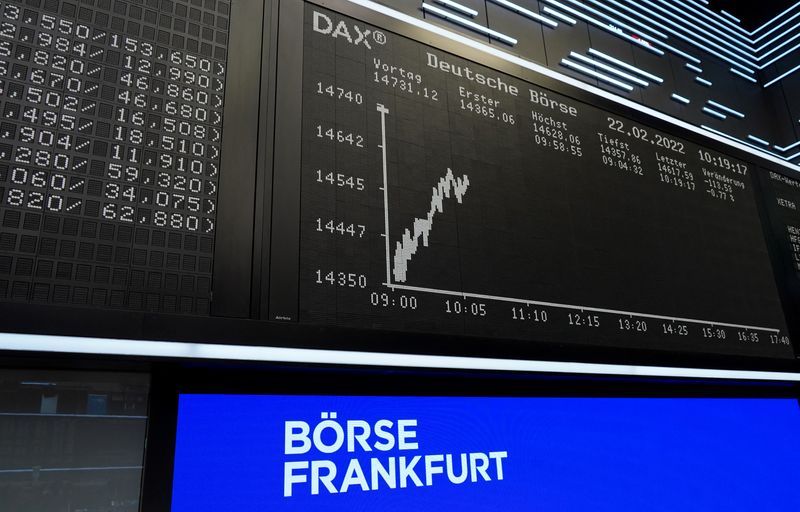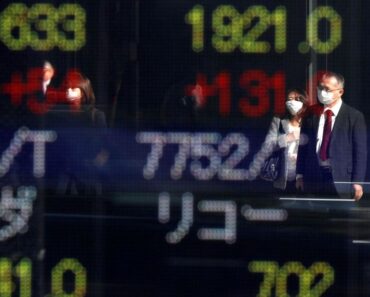This post was originally published on this site

The companies reporting, from Roche Holding AG (OTC:RHHVF) to HSBC Holdings plc (LON:HSBA) and Remy Cointreau (EPA:RCOP), have combined market value of 4.5 trillion euros ($4.9 trillion), equivalent to about half of the benchmark index, according to data compiled by Bloomberg. Thursday is set to be particularly lively, with almost 70 companies coming out with their numbers.
This earnings season comes at a challenging time for European equity investors, who are grappling with a flurry of concerns, including the fallout from the war in Ukraine, a hawkish turn in monetary policy and surging inflation.
Healthcare, banks and industrials are among the top reporting sectors by market value over the coming days. UBS Group AG (SIX:UBSG) and HSBC will draw close scrutiny as the first banks to elaborate on market volatility and Russia-related credit risks.
By Friday afternoon, investors and traders might have a better idea about the state of corporations and how much of an impact executives expect from supply-chain snarl ups, rising interest rates, elevated commodity prices and the war in Ukraine.
“Companies are currently facing a triple crosswind and therefore the comments on the outlook will be particularly interesting,” said Johannes Maier, a portfolio manager at Bantleon AG.
Early signs were that investors have little patience for any misses, with Philips (AS:PHG) falling as much as 10% after its first-quarter earnings fell short of analyst estimates.
While downgrades for European ex-U.K. companies’ earnings revisions still outpace upgrades, according to a Citigroup Inc. index, the gauge is nearing neutral levels.
There are plenty of things for market watchers to worry about, but there is one silver lining: so far, this earnings season has delivered a mostly smooth ride.
Pierre Veyret, technical analyst at ActivTrades, said about 80% of companies have beaten profit estimates. “These opposing factors have led to the current ‘schizophrenic’ state of stock markets,” he said.
©2022 Bloomberg L.P.


